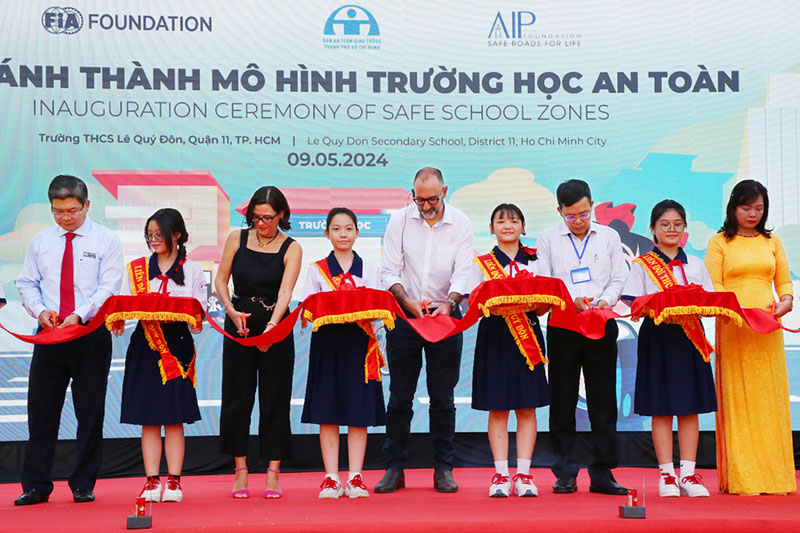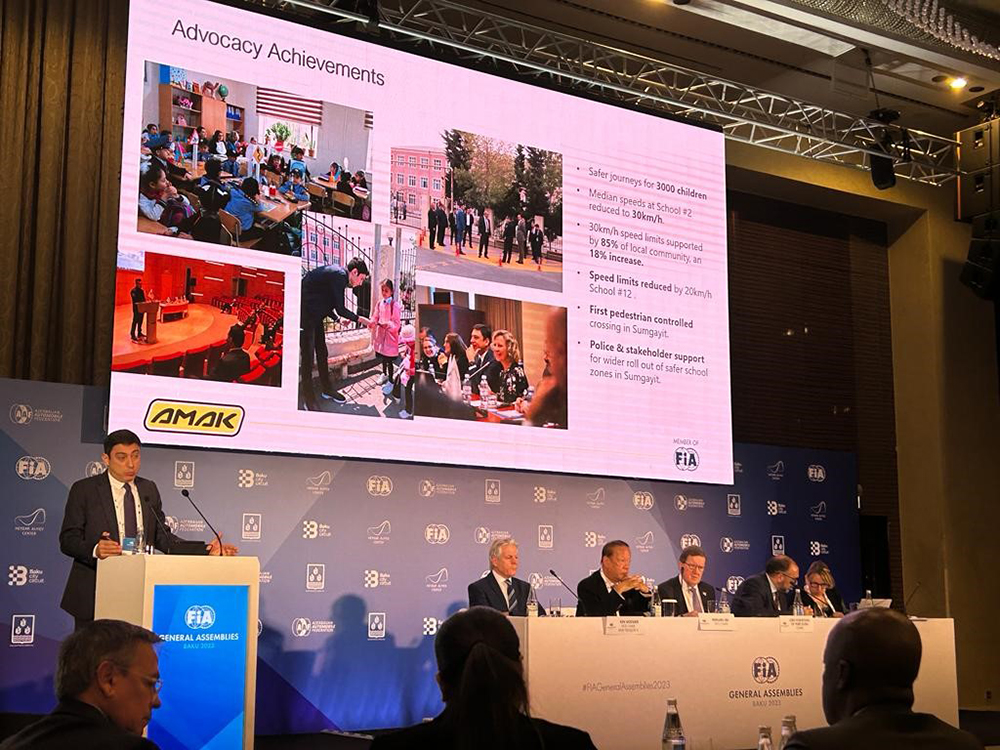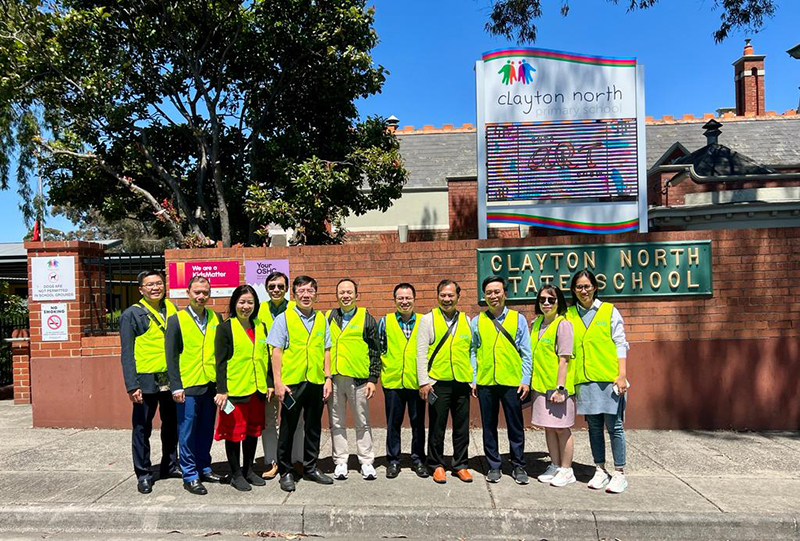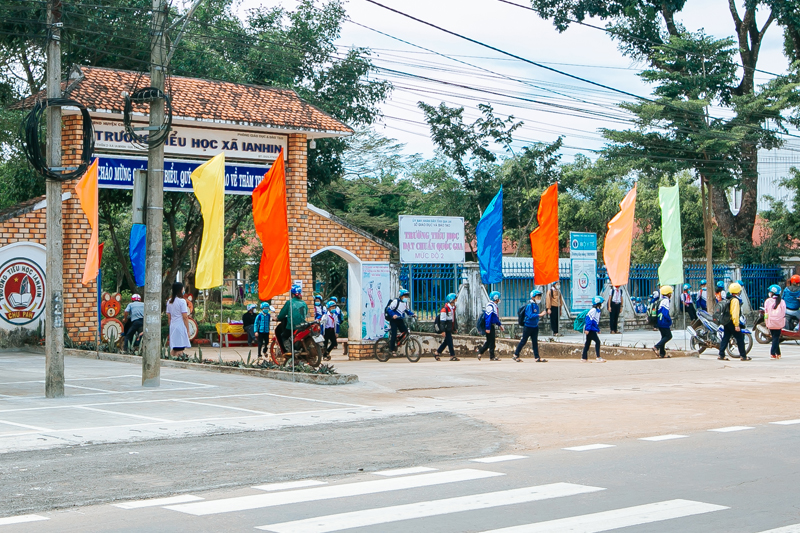Child Health Initiative calls for SDG Action
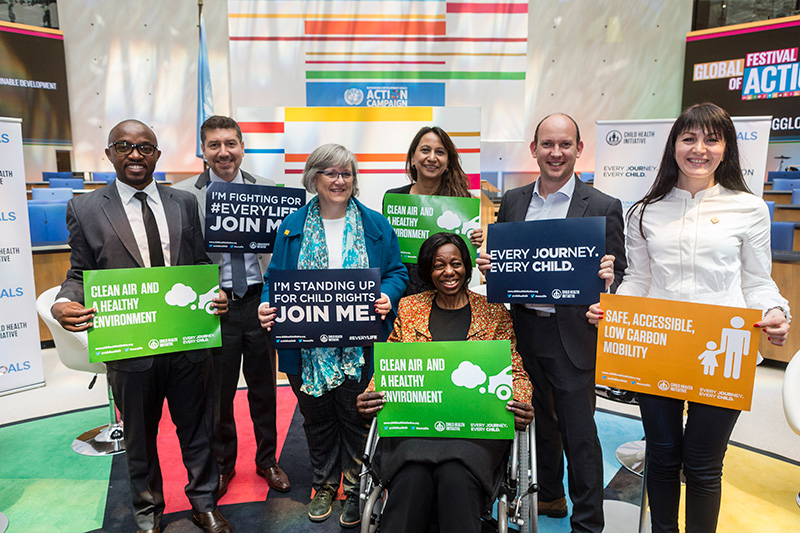
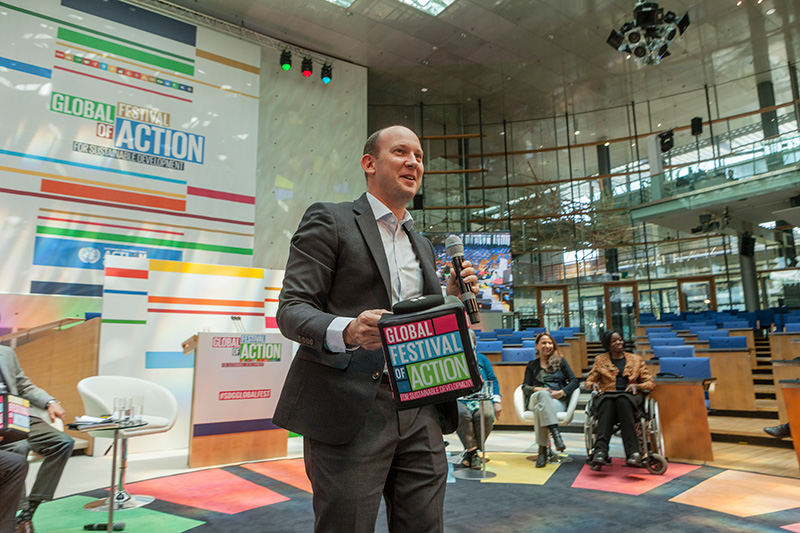

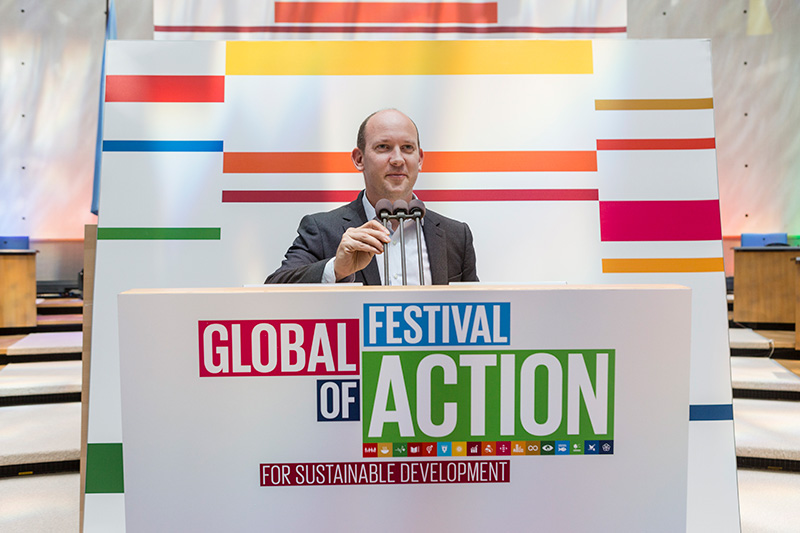
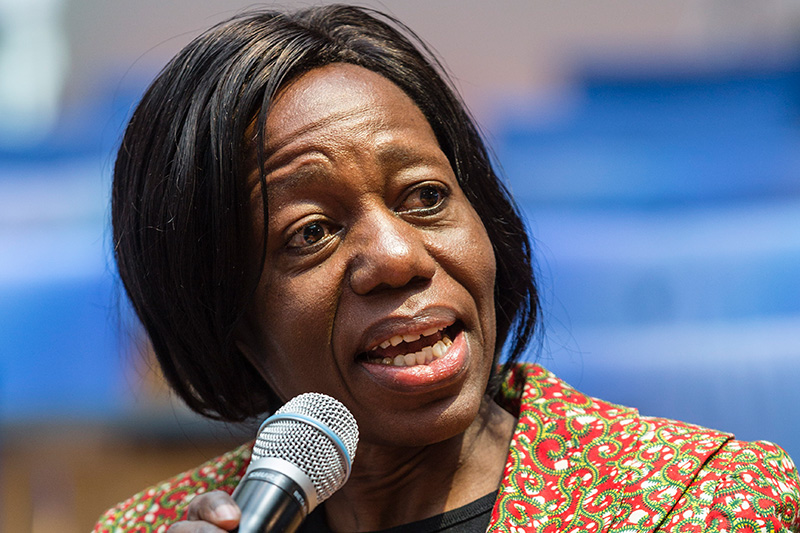
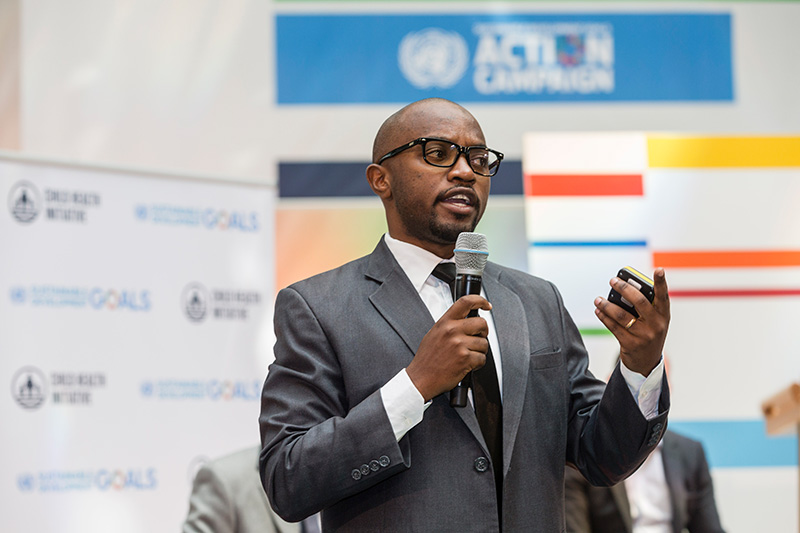
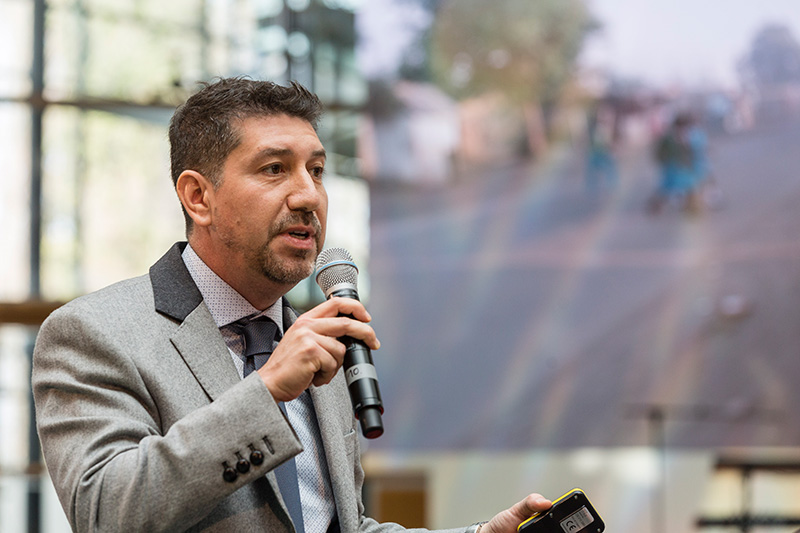
The Child Health Initiative (CHI) has played a prominent role in the Global Festival of Action for Sustainable Development, issuing a strong call for safe and healthy journeys to school for every child worldwide.
The global festival, held in Bonn from 21-23 March, is the main event set up by the UN Sustainable Development Goals Action Campaign aimed to help drive progress towards the global goals.
The CHI, convened by the FIA Foundation, held an interactive panel discussion focused on safe and healthy journeys to school on the opening morning of the festival. The CHI brought experts in public health, child injury, air quality and sustainable mobility together for an engaging panel discussion with the audience of international development practitioners.
The audience in Bonn and worldwide on the UN TV webcast, was presented with the realities of the journey to school for children in many low- and middle-income countries around the world. The story of Cecilia Chibulunje was featured at the start of the session. She lives in one of the poorest neighbourhoods of Dar es Salaam, Tanzania, with her family earning little over $2 a day.
Cecilia who is now 10 years old, was hit by a speeding motorcycle just a few metres from her school gate. She suffered head injuries and missed a significant amount of schooling. Fortunately, Cecilia was eventually able to return to school but her education has suffered greatly and her family has been plunged further into poverty. This, as the audience was told, is a story repeated across the developing world thousands of times each day with road traffic injury a major global health burden for children aged 10 and over.
In an example of the action that can be taken to address this crisis, the panel presented a school area road safety assessment and improvement which had recently been carried out by the Amend NGO and International Road Assessment Programme (iRAP) in a similar community to Cecilia’s, in Lusaka Zambia.
The panel included: Dr. Margie Peden, Senior Research Fellow at The George Institute for Public Health, Simon Kalolo, Amend NGO Senior Programme Officer from Dar es Salaam, Julio Urzua Director Americas & Caribbean International Road Assessment Programme; Tatiana Mihailova, Executive Director of the Automobile Club of Moldova and representative of EASST; Prarthana Borah, India Director Clean Air Asia and Bright Oywaya, Executive Director of ASIRT.
The participants gave evidence of the burden of road traffic on children, highlighting how injury and toxic air are combining to damage the health and development of millions of children worldwide. They presented the solutions to address these issues, and called for greater collaboration with those implementing the SDGs in order to improve child health and uphold child rights.
FIA Foundation Deputy Director Avi Silverman moderated the panel. He said: “Delivering the SDGs for children around the world must be upheld as a core priority of the global development agenda. However, we will not be able to achieve anything if the major threats and burdens that children face are not addressed. Road traffic injury, the number one global killer of older children must not go ignored by the development community. As the panel highlighted, safe streets and clean air for young people are non-negotiable. We can, and we must, deliver a safe and healthy journey to school for every child worldwide.”
Dr. Margie Peden said: “The SDG strategies for child health and the global approach to road traffic injury prevention must be brought together, integrated effectively. The ‘Save LIVES’ package of interventions to address road safety in the SDGs, provides the solutions. What we urgently need is to mobilise the political support and the resources around the world to ensure that these solutions are in place, and particularly for children who are suffering an intolerable burden.”
Closing the session, Bright Oywaya gave her personal testimony as a survivor of a road traffic crash in Kenya. She said: “In much of the world road traffic is out of control. It represents part of development that should improve our lives but instead people are being injured and killed.
“In my country, the majority of school children walk to and from school. They have to cross many lanes and avoid speeding cars. Sadly, not all of them make it back home from school. Some are killed. Others are injured and acquire permanent disabilities like I have. This leads to loss of school time and denies them access to education that is a basic right. Which is a key priority of SDGs undermined. It is not just road traffic injury that is a threat to school going children, they are also forced to inhale fumes from unroadworthy vehicles thus exposing them to health complications including breathing related ailments.
“Such health burdens are entirely unacceptable particularly as we have the solutions readily available. My plea to the international community implementing the SDGs is to make safe and healthy journeys to school a priority for action right now.”
Click here to view the webcast from the Global Festival of Action for Sustainable Development >
Watch the film of Amend and iRAP providing a safe journey to school for children in Lusaka >



